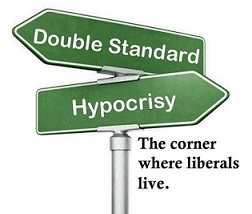Driving the growing populist outrage in Europe and North America is the global push for a world without borders. While the world’s elite can build walls or switch zip codes to insulate themselves from the consequences of allowing anyone and everyone to walk across an open border unfortunately the peasants aren’t so lucky.

In 2016 then Secretary of State John Kerry told the graduating class at Northeastern University that they were “graduating into a complex and borderless world,” a world of which he failed to mention he wouldn’t be living in. If he did, he would never have moved his 76 foot luxury yacht from Boston Harbor to Rhode Island in order to avoid $500,000 in sales taxes and assorted state and local taxes that his fellow elites placed on residents of Maryland.
Nor was Kerry upfront with the graduating class on how they would be able to afford the taxes necessary to fund huge subsides that the U.S. lavishes on immigrants, both legal and illegal, subsidies that include welfare, refundable tax credits, free schooling, food stamps, ObamaCare, housing subsidies, ad nauseam, subsidies paid for by taxpayers for people who have never contributed anything to this country.
Facebook founder Mark Zuckerberg advocates for a fluid southern border and lax immigration enforcement without mentioning that he has stealthily spent $30 million to purchase 4 homes surrounding his Palo Alto estate that form a sort of “no-man’s land” defense outside of his Maginot Line fence, presumably designed against hoi polloi who might not share his taste or sense of privacy. Neighbors of his San Francisco estate complain constantly about his “security team” hogging all the best parking spaces. And his neighbors on Kauai’s North Shore are upset with the 6 foot rock wall he built around his 700 acre retreat. Open borders are apparently only dear to his heart when it concerns the peasants – not so much when it’s his wall, and his border security.
The National Council of La Raza (“the race”; Latin, radix) is the largest lobbying body for open borders even though Mexico itself supports the idea of boundaries. They may harp about alleged racism in the United States directed at Mexican immigrants, but nothing in U.S. immigration law compares with Mexico’s 1974 revision of its “General Law of Population” and its emphasis on migrants not upsetting the racial makeup of Mexico—euphemistically expressed as preserving “the equilibrium of the national demographics.” In sum, Mexican nationals implicitly argue that borders, which unfairly keep them out of the United States, are nonetheless essential to maintaining their own pure raza.
In early 2016, Mexico ramped up its border enforcement with Guatemala, adding more security forces, and rumors even circulated of a plan to erect occasional fences to augment the natural barriers of jungle and rivers. Apparently they view poorer Central Americans as less equal to their own citizens.
In general Mexico opposes any enforcement of the U.S. southern border and in particular the proposed Wall that would prevent illegal entry into the U.S. because they enjoy the fiscal advantages in exporting its citizens northward, whether in ensuring nearly $30 billion in remittances, creating a powerful lobby of expatriates in the U.S., or finding a safety valve for internal dissent.
Last year Prime Minister Justin Trudeau signed the Un Global Compact on Migration. While a pact is not legally binding as an actual treaty, it does give the Canadian liberal government an excuse to ignore law that doesn’t agree with the current and future goals of the U.N. Canadians can look forward to the eventual transfer of authority from their elected officials to the centralized authority of the U.N., the elimination of sovereignty and immigration policy, as well as freedom of the press and free speech against unfettered immigration.
The end of borders, and the accompanying uncontrolled immigration, will never become a natural condition, any more than sanctuary cities, unless forced by the federal government, will voluntarily allow out-of-state agencies to enter their city limits to deport illegal aliens, or Mexico will institutionalize free entry into its country from similarly Spanish-speaking Central American countries.
Borders are to distinct countries what fences are to neighbors – means of demarcating that something on one side is different from what lies on the other side, a reflection of the singularity of one entity in comparison with another. Borders amplify the innate human desire to own and protect property and physical space, which is impossible to do unless it is seen—and can be so understood—as distinct and separate.
Clearly delineated borders and their enforcement, either by walls and fences or by security patrols, won’t go away because they go to the heart of the human condition—what jurists from Rome to the Scottish Enlightenment called meum et tuum, mine and yours. Between friends, unfenced borders enhance friendship; among the unfriendly, when fortified, they help keep the peace.
Imagine there’s No Border, by Victor Davis Hanson, contributing editor of City Journal; Kerry tells grads they are about to enter a ‘Borderless World,’ American Thinker; Betrayal: Trudeau Government Signs UN Global Compact On Migration


Well said! Couldn’t agree with you more.